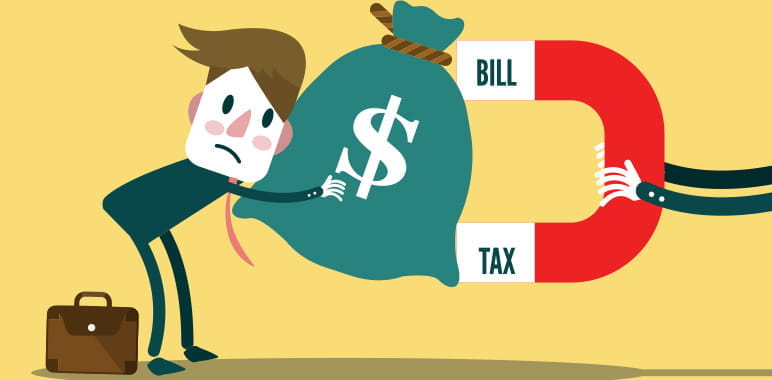Sports Betting Tax in Different Countries
Do you have to pay a sports betting tax, and if yes, how much exactly? That question must have crossed the mind of a ton of hobbyist punter and professionals too! We take the subject matter so seriously that we investigated the tax on betting in some of the world’s gambling hotspots. As the cradle of sports gambling, we pay special attention to the betting tax UK punters must know about.
The timeline that has led to the current state of the sports betting tax rates of different countries will never be one and the same. So, the levy on betting is the natural product of circumstances such as how long this type of gambling has been legal, offshore competition, and others. We will do our best to explain what the case is with the jurisdictions whose betting taxes we are going to discuss.
Betting Tax UK
Chancellor Gordon Brown did away with the tax on betting punters had to pay. That was 15% on winnings, collected by the government – 6,75% from sportsbooks and 9% from punters. In 2001, online gambling was already starting to gain speed, and this was a much-needed change to make off-track betting competitive to offshore online betting where little to no taxes were paid.
Even the best online bookmakers in the UK were having a hard time matching what the offshore sites were offering at that time. So, in light of the present at the time difficulties for the local gambling industry, Chancellor Gordon Brown abolished the gambling tax. Now punters from the following UK countries can enjoy tax-free betting.
- England
- Scotland
- Wales
- Northern Ireland
Despite the fact there’s no mandatory levy for gamblers in the UK, the HM Revenue & Customs collects astronomical sums of tax money from licensed operators. The latter have to pay a 15% tax on revenue in order to stay compliant.
One downside to this for the players, after all, is said and done, is that the bookies seek ways to make up for the money lost in taxes and will always come up with shorter odds because of that. Similarly, casinos will always try to bump up the house edge in order to stay on top. That’s why we only recommend UK casino roulette sites after we’ve reviewed them all ends up.
Tax on Betting in the USA
The situation with sports gambling in the US is, in many ways, different, and betting taxes is one of the main differentials. And of course, to complicate matters, even more, you have the federal government demanding its own cut from sports betting revenue. So, there are at least two sides of the equation you must account for when you report your winnings.
The same goes for the Massachusetts gambling laws and other states where gaming is legal. It would help if you were both acquainted with state and federal law. Here’s what the betting levy looks like in the states where sports wagers are legal.
Betting Tax by State
US punters are in the unique position to have to manoeuvre a riddled with different laws and requirements landscape. Under this premise, you should know that the tax on betting winnings will not be the same for the residents of different states, just as the gambling laws around the world are bound to be different. In the next table we detail the betting tax by state.
| 🌆 State | 💸 Betting Tax |
|---|---|
| Arizona | Minimum 8% |
| California | 10% |
| Connecticut | 13.7% |
| Florida | 13.75% |
| Lousiana | 10% in-person, 15% online |
| Maryland | From 15% to 17.5% |
| Michigan | 4.25% |
| Nebraska | 20% |
| New York | 13% |
| New Jersey | 13% |
| Pennsylvania | 3.07% (all gambling winnings) |
| South Dakota | 9% |
| Washington | N/A |
| Wyoming | 10% |
Federal Tax on Betting
Depending on how much you win, the payment’s issuer (your sportsbook) might send you a W-2G form. The form has two halves. The left half is reserved for the player’s personal details, and the other half is where all details about the wager are stated. W-2G is used to report the following gambling winnings:
- More than $1200 from bingo or slot machines
- More than $1500 from keno
- More than $5,000 from tournament poker
- More than $600 from gambling winnings when the wager is 300 times less than the payout
With sports betting in the US in full swing, every active participant ought to know under what circumstances a betting tax will be subtracted from their winnings. The federal tax amounts to 24% of the sum won. The bettor must have won upwards of $600, and the amount has to be at least 300 times the bet placed.
Deducting Losses
If you are a permanent resident in the United States, you’ll have the option to deduct your gambling losses from your adjusted revenue. Non-residents are required to report winnings using Form 1040NR and are taxed at a rate of 30%. If you want to deduct your betting losses, make sure to keep a record of the following information:
- When and what wager was placed
- Details about the name of the wager and where it was made
- How much you’ve lost
- Ticket/bet slip
- Payment records
Keep in mind there are underpayment penalties in some states. Always report the correct total of your winnings for the respective month. Your expenses don’t always count towards betting losses. For example, food, transport, and other everyday expenses will not be deducted from your betting revenue even if they are somehow related to how and where you placed bets.
Taxes for Professional Bettors

Profesisonal gamblers in the United States have the benefit of being taxed at the rates for normal earned income. In this case, both income and expenses must be documented via Schedule C. This form is entitled “Profit or Loss From Businesses”, so it’s not surprising that its used to report income and lossess. Someone who makes a living out of betting is considered a self-employed taxpayer. This puts them on an equal footing with business owners and ultimately necessitates a Schedule C report.
Spread Betting Tax
Not to be mistaken with its sports counterpart, spread betting has financial origins, but it’s also rooted in traditional bookmaking. This is an important delineation because, in a country where sports betting is legal, spread betting might not be.
In the UK, spread betting is completely legal and tax-free; so the UK Gambling Commission enforces no mandatory levy on winnings. However, in the US, spread betting is a completely forbidden practice. Needless to say, there’s no spread betting tax.

As spread betting is regarded as a type of online gambling, it benefits from the no-tax policy of the United Kingdom. This is not the only reason UK punters choose to speculate on spread betting markets; there’s a whole array of other pros. For example, you don’t pay stamp duty; you don’t need to own the underlying asset you are speculating about; you don’t need to worry about separate commission fees. Last but not least, you can bet in GB pounds on a range of markets.
Betting Taxes by Country
Just like the largest casinos around the world, there’s an element of uniqueness in way sports betting tax rates are determined. From countries where bettors are fully exempt from paying taxes on their winnings to countries that heavily tax all kinds of gambling winnings. It’s impossible to walk you through the law in all countries of the world, so we chose three cases that illustrate how different this type of legislation can be.
Macau
Some describe Macau as a ‘tax haven’ and rightly so. The report by the Financial Services Bureau reveals that 73% of government revenue in 2021 is the direct result of gambling tax money. And while Macau casinos are taxed at the hefty rates of 35% (special gaming tax), plus special contributions of up to 4 per cent.
For sports betting, the taxes due are divided into two – a mandatory rent starting at 6 million patacas. The gross revenue (in patacas) of each operator determines the size of the rent due.
| 💵 Gross Revenue in Patacas | 🏰 Rent Due in Patacas |
|---|---|
| 0 to 30 million | 6 million |
| 30 million to 40 million | 8.2 million |
| 40 million to 50 million | 10.6 million |
| 50 million to 60 million | 13.2 million |
| 60 million to 70 million | 16 million |
| 70 million to 100 million | 25 million |
| More than 100 million | 37 million |
Spain
Ever since bookmaking was ruled legal in Spain, sports betting tax has become a hot button issue. We have to say; this tax is calculated based on flexible rules, allowing those who win less to pay at lower rates. If you are an adult who wants to start making wagers online, keep in mind that you are legally obligate to keep track of your winnings and report them to the Tax Agency.
But wait, this is only the case if your work or real estate income from a single payer exceeds €22,000 per year or €12,000 from per year from more than one payer. Here are more details about how much players and bookies pay to the Tax Agency in sports betting taxes.
Kenya
In Kenya, sportsbooks pay 15% of revenue generated from betting, while the players have to pay a betting winnings levy of 20%. In establishing the sports betting laws in the country, the tax on betting winnings was removed and reinstated again after an amendment was approved.
Not only are there great roulette sites in Kenya, but the best operators are pushing the sports betting front as well. At this rate, and with the reasonable-looking government taxes, the gaming industry there is sure to flourish.
FAQ – Betting Taxes
Betting taxes vary from jurisdiction to jurisdiction, and the key to understanding how they are formed is to know the law. We understand you may still have questions about everything we touched on until now. Below are our answers to the frequently asked questions concerning the betting taxes around the world.
 Sports betting winnings are taxable income in Spain. But the percentage at which players are taxed depends on their tax base, not just the winnings from sports betting. With a tax base of €12,450, the levy on betting winnings would be 19%. The percentage rises to up to 45% for people with a tax base of more than €60, 000
Sports betting winnings are taxable income in Spain. But the percentage at which players are taxed depends on their tax base, not just the winnings from sports betting. With a tax base of €12,450, the levy on betting winnings would be 19%. The percentage rises to up to 45% for people with a tax base of more than €60, 000 The Tax on Gambling Activities was reinvented in 2011. Law 13/2011 lowered it from 25% to 20% on gross gambling revenue. This is what licensed sports betting operators have to pay. Sportsbooks whose tax residence is based in Ceuta or Melilla are taxed at half the rate – 10%.
The Tax on Gambling Activities was reinvented in 2011. Law 13/2011 lowered it from 25% to 20% on gross gambling revenue. This is what licensed sports betting operators have to pay. Sportsbooks whose tax residence is based in Ceuta or Melilla are taxed at half the rate – 10%. Sports betting winnings are taxable income as per the gambling law in Spain – there are no two ways about that. Nowadays, both professionals and recreational bettors are allowed to deduct losses from their winnings. Up until recently, everyone was taxed based on their gross winnings.
Sports betting winnings are taxable income as per the gambling law in Spain – there are no two ways about that. Nowadays, both professionals and recreational bettors are allowed to deduct losses from their winnings. Up until recently, everyone was taxed based on their gross winnings.

